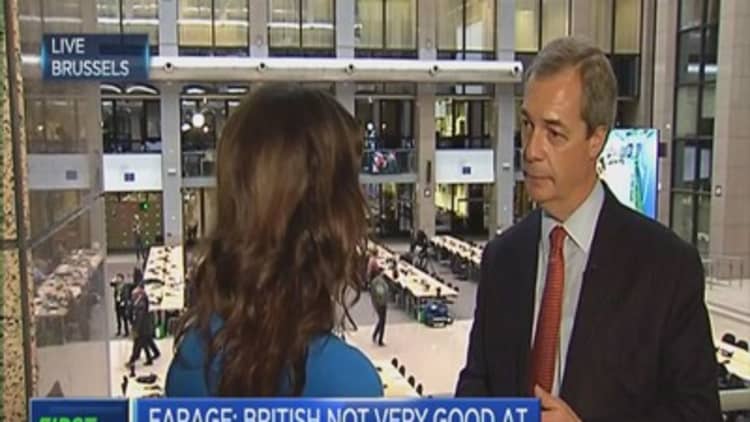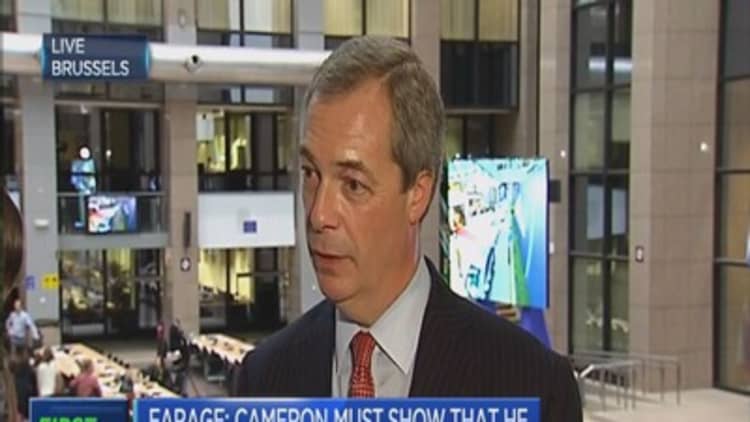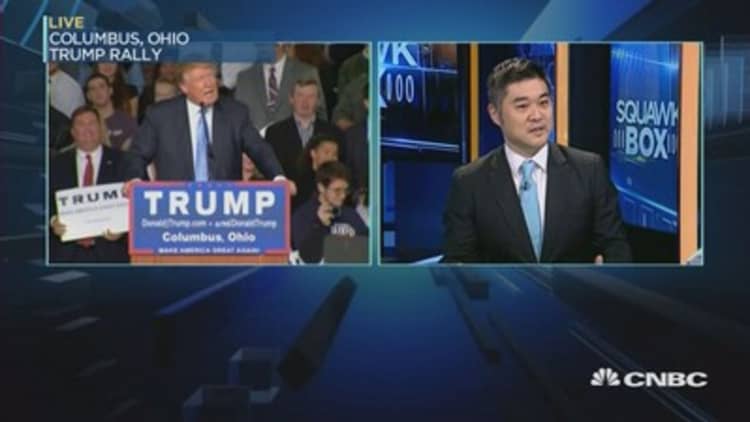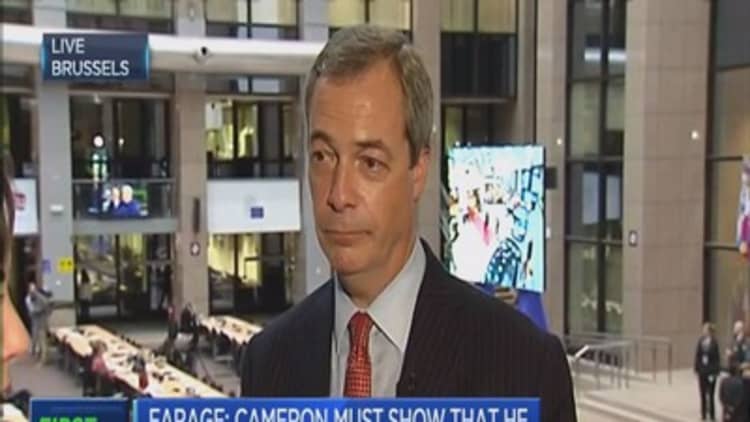



Republican presidential candidate Donald Trump was wrong to call for a ban on foreign Muslims entering the U.S., according to the U.K.'s own outspoken politician, Nigel Farage, the leader of the U.K. Independence Party, who also didn't pull his punches when it came to his current workplace.
Many prominent politicians have poured scorn on Trump for calling for the temporary ban, now even the leader of the anti-immigration UKIP.
"I think Trump was wrong to go as far as he did, but the basic point that we in the West should not be importing terrorism is the right one," Farage told CNBC Friday. "Being very careful about who you let in and vetting people (is fine) but just shutting up shop is not a very positive message."
Farage is known for his outspoken and often controversial views on immigration. His party, UKIP, had 4 million votes in the last U.K. election in May, making it a formidable force in U.K. politics. In the same vein, Trump has led in polls.
Read More Did Putin just endorse Donald Trump?
Contrasting himself with Trump, Farage said: "I'm considered outspoken but, jeepers, in America, I would be a shrinking violet, it's a very different kind of politics" in the U.S.
Nonetheless, Farage predicted Trump would win the Republican nomination but questioned whether he would be able to "reach out to people in America who usually don't vote in elections."
Brussels a 'dump'
Farage was speaking to CNBC from the heart of European bureaucracy in Brussels — a city he called a "dump" — where U.K. Prime Minister David Cameron met with his European counterparts on Thursday evening.
Talks held over dinner focused on a forthcoming referendum on Britain's membership of the European Union and the country's demands for EU reforms, especially on immigration rules, that could help prevent it from leaving the 28-country bloc.
The discussions took place over dinner and focused on the U.K. demands. Speaking after the dinner, which was bound to be awkward given the opposition to giving the U.K. leeway over EU policies, Cameron said he saw a "pathway to an agreement" despite facing a roadblock on his plan for a four-year ban on migrants being able to claim in-work benefits.
Read More UK EU dinner talks to have 'no taboos'
"I think really good progress has been made, but it is going to be tough, because we are attempting something very difficult," Cameron told reporters after the dinner, which was part of a two-day meeting of the European Council.
"We are attempting something that hasn't been tried before or tried by another country, and that is to renegotiate our position inside this European Union at a time of our choosing, with a mandate of the British people," he said after the dinner discussions.
In a statement, the European Council called the talks "substantive and constructive." However, Farage said Cameron would go home from the meeting "empty handed."
UK will leave EU
The U.K. has already set out its formal demands for EU reforms, including changes to economic governance (to ensure the protection of the single market for the U.K. and other non-euro countries), plans to boost competitiveness, sovereignty (allowing Britain to be exempt from the EU's objective of "ever-closer union") and crucially, immigration restrictions.
The latter demand is a thorny issue as Europe prides itself on the freedom of movement and right to work in the EU that pertains to all of the Union's 500 million citizens. That freedom has not only been criticized by the U.K., however, with the EU coming under pressure to close its borders amid an influx of thousands of migrants fleeing civil war and poverty in the Middle East and Africa.
Parties like UKIP have gained in popularity over the years due to a rising anti-immigration and eurosceptic feeling among some sections of the U.K. public. It has been matched on the continent by other anti-immigration, anti-EU parties.
The stakes are now higher with Cameron responding to increasing support for UKIP by promising a referendum on EU membership by the end of 2017. Farage believes the public will vote to leave the EU.
"Immigration, control of borders and now security are the number one issues in British politics and unless he (Cameron) is able to persuade the British public that through these negotiations he's made Britain a safer place with more choice about who comes to Britain, he will lose the referendum," Farage said.


